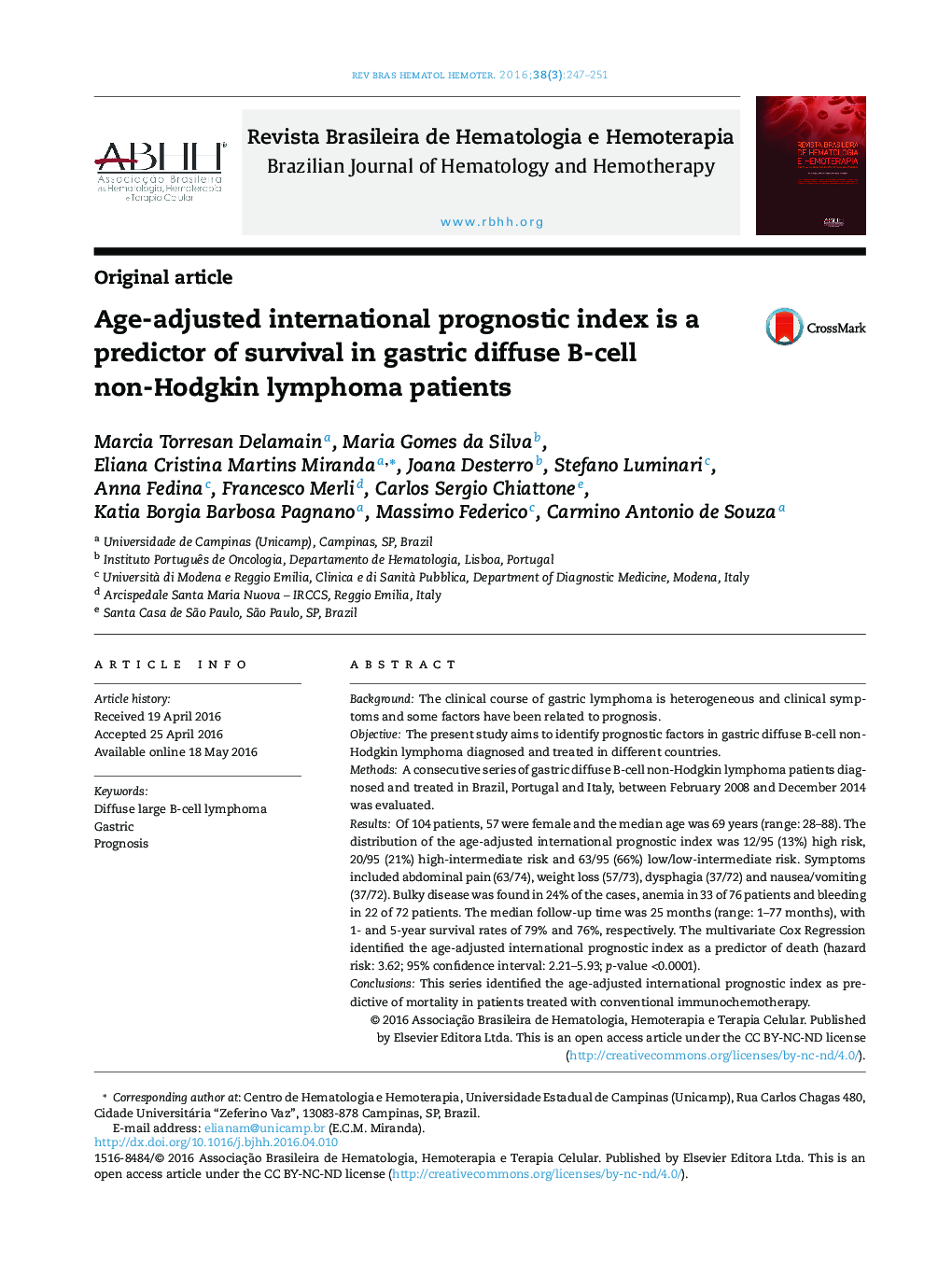| Article ID | Journal | Published Year | Pages | File Type |
|---|---|---|---|---|
| 3332898 | Revista Brasileira de Hematologia e Hemoterapia | 2016 | 5 Pages |
BackgroundThe clinical course of gastric lymphoma is heterogeneous and clinical symptoms and some factors have been related to prognosis.ObjectiveThe present study aims to identify prognostic factors in gastric diffuse B-cell non-Hodgkin lymphoma diagnosed and treated in different countries.MethodsA consecutive series of gastric diffuse B-cell non-Hodgkin lymphoma patients diagnosed and treated in Brazil, Portugal and Italy, between February 2008 and December 2014 was evaluated.ResultsOf 104 patients, 57 were female and the median age was 69 years (range: 28–88). The distribution of the age-adjusted international prognostic index was 12/95 (13%) high risk, 20/95 (21%) high-intermediate risk and 63/95 (66%) low/low-intermediate risk. Symptoms included abdominal pain (63/74), weight loss (57/73), dysphagia (37/72) and nausea/vomiting (37/72). Bulky disease was found in 24% of the cases, anemia in 33 of 76 patients and bleeding in 22 of 72 patients. The median follow-up time was 25 months (range: 1–77 months), with 1- and 5-year survival rates of 79% and 76%, respectively. The multivariate Cox Regression identified the age-adjusted international prognostic index as a predictor of death (hazard risk: 3.62; 95% confidence interval: 2.21–5.93; p-value <0.0001).ConclusionsThis series identified the age-adjusted international prognostic index as predictive of mortality in patients treated with conventional immunochemotherapy.
